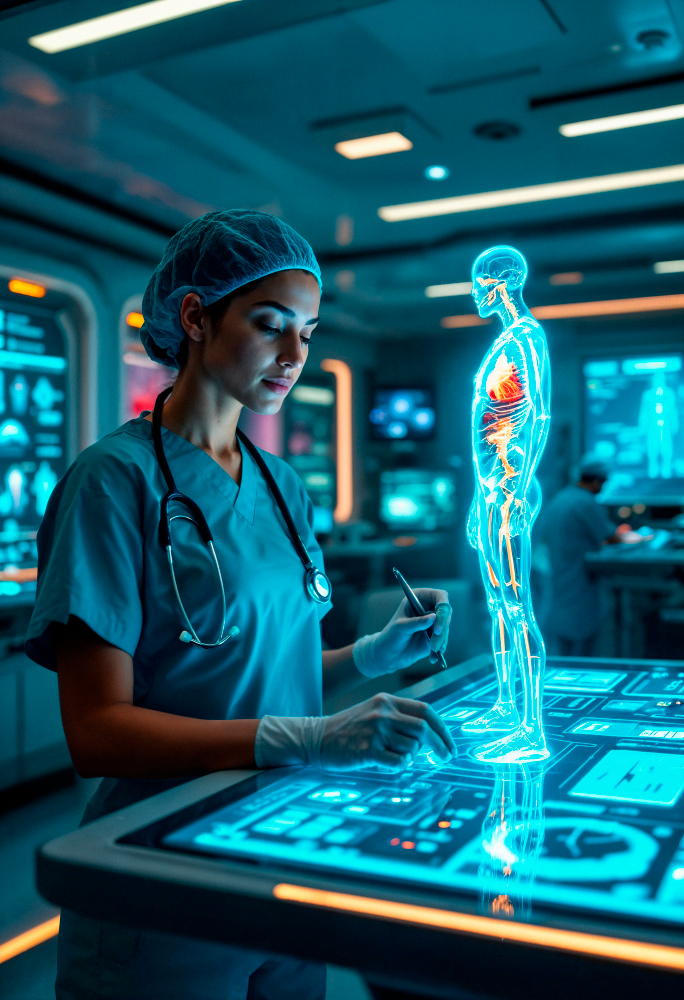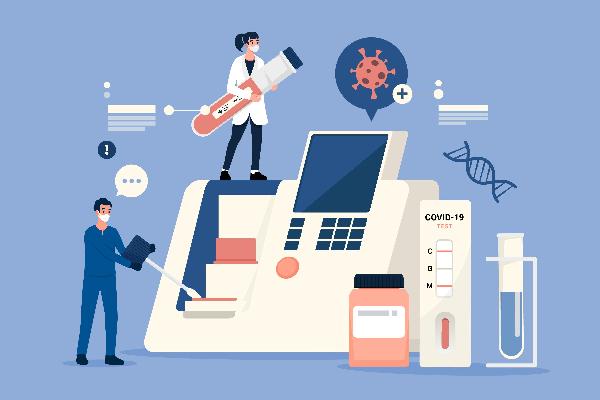Why Multimodal AI Is the Brain Behind Tomorrow’s Smart Hospitals

As healthcare systems race toward digital transformation, smart hospitals are no longer a futuristic concept—they're becoming a reality. But behind every intelligent system, predictive dashboard, and personalized treatment plan lies a powerful engine: multimodal AI in healthcare.
Multimodal AI is rapidly emerging as the central nervous system of tomorrow’s smart hospitals. It doesn't just analyze data—it connects the dots across multiple data types to make real-time, life-saving decisions. Let’s explore how.
What Is Multimodal AI in Healthcare?
Multimodal AI refers to artificial intelligence that processes and fuses data from multiple modalities—like medical imaging, EHRs, genomics, wearable sensors, and even patient speech or text input.
Where traditional AI works with one type of data at a time, multimodal AI integrates all of them, building a deeper and more accurate understanding of patient health.
Instead of just flagging a concerning MRI result, multimodal AI can correlate it with EHR notes, lab results, and genetic data to determine risk levels and suggest next steps—within seconds.
How Smart Hospitals Use Multimodal AI
Smart hospitals are defined by connected systems, automated workflows, and data-driven decisions. Here’s how multimodal AI fuels that intelligence:
1. Real-Time Clinical Decision Support
Multimodal AI pulls live data from bedside monitors, lab systems, imaging platforms, and EHRs. It processes this in real-time to:
Alert clinicians about deteriorating vitals
Predict sepsis or cardiac arrest before symptoms escalate
Suggest treatment paths based on patient history and genomics
This shifts care from reactive to predictive.
2. Unified Patient View
Multimodal AI consolidates fragmented data into a single, coherent patient dashboard. Clinicians no longer need to jump between systems to find imaging reports, medication lists, or allergy records.
Everything is contextualized—giving doctors a holistic view that enhances diagnosis and decision-making.
3. Smarter Resource Allocation
AI can analyze hospital workflows, patient inflow, equipment usage, and even surgical schedules. It predicts peak hours, optimizes staffing, and suggests ways to reduce wait times—enhancing both patient care and operational efficiency.
4. Personalized Care at Scale
By combining genetic data with lifestyle inputs and clinical history, multimodal AI personalized treatment plans for each patient.
This enables precision medicine—matching the right treatment to the right patient, improving outcomes and reducing costs.
5. Remote Patient Monitoring & Virtual Care
In smart hospitals, the walls extend beyond the facility. Multimodal AI powers remote monitoring by:
Integrating data from wearables and home devices
Detecting abnormal patterns in real-time
Alerting providers when intervention is needed
This creates a continuous care loop—from hospital to home.
The Technology Behind the Scenes
Multimodal AI systems rely on advanced deep learning architectures, including:
Transformer models and attention mechanisms for data fusion
NLP (Natural Language Processing) for clinical notes and conversations
Computer Vision for medical image analysis
Genomic data engines for disease susceptibility and drug response
Interoperability frameworks (e.g., FHIR, HL7) to unify systems
Together, these technologies make smart hospitals truly intelligent.
What About Privacy and Trust?
Patient trust is critical. Leading smart hospitals implementing multimodal AI are focusing on:
HIPAA-compliant systems
Explainable AI (XAI) to ensure clinical transparency
Data encryption and anonymization
Ethical frameworks for AI decision-making
These guardrails ensure that innovation doesn’t compromise patient safety or privacy.
The Future: Hospitals That Think, Adapt, and Learn
Imagine a hospital that:
Alerts nurses to emergencies before they happen
Personalizes treatment with a patient's genetic and lifestyle data
Predicts disease outbreaks in a community
Automatically schedules follow-ups and monitors patient recovery at home
This is the promise of multimodal AI in healthcare—not just smarter in hospitals, but responsive, predictive, and patient-centered care.
Final Thoughts
As smart hospitals become the standard, multimodal AI will be their brain—powering everything from diagnostics to patient engagement and system optimization. For healthcare providers, now is the time to adopt, invest, and lead in this AI-driven future.
At Emorphis Technologies, we help healthcare innovators build intelligent, secure, and scalable multimodal AI solutions. Let’s co-create the future of care.
Note: IndiBlogHub features both user-submitted and editorial content. We do not verify third-party contributions. Read our Disclaimer and Privacy Policyfor details.







